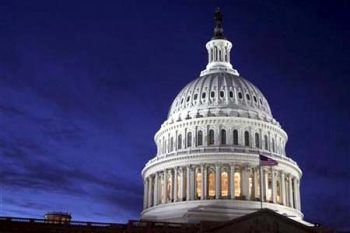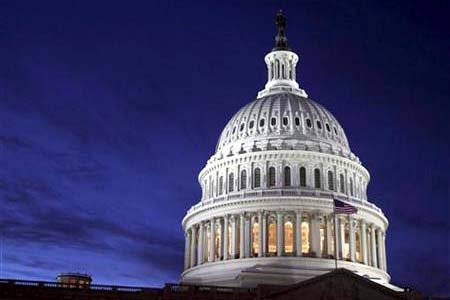A proposed law to safeguard children may threaten U.S. Internet privacy, as battles over online freedom ramp up.
The same representative who sponsored the anti-piracy SOPA legislation, Rep. Lamar Smith (R.,Texas), offered The Protecting Children from Internet Pornography Act, or H.R. 1981, which would require Internet providers to store and monitor personal information linked with IP addresses, including data entered on mobile handsets.

Smith touts the bill as a tool for law enforcement to catch child pornographers, but analysts are crying foul, saying the sweeping expanse of the bill jeopardizes the privacy and security of every U.S. Internet user.
H.R. 1981’s introduction, and the building outrage accompanying it, point to the ongoing debate in the U.S. over Internet freedom, and privacy in general. Smith and his supporters highlighted the proposal’s function, to catch deviants.
Still, critics say it positions citizens as suspicious, if not guilty, until proven innocent, since the bill’s proposed changes would stockpile information about all U.S. citizens using the Internet, looking for clues into possible criminal activity.
“This type of legislation goes against the fundamental values of our country where individuals are treated as innocent until proven guilty,” activist Rainey Reitman said. “H.R. 1981 would uproot this core American principle, forcing ISPs to treat everyone like a potential criminal.”
Debate over the bill emerges as proposed legislation over data privacy ramp up. To protect consumers from tech companies mining their data, President Obama unveiled a Consumer Bill of Rights, making sure businesses do not use customer information for their own benefit. The Consumer Bill of Rights speaks to lawmakers and regulatory bodies’ building concerns about Google and Facebook’s potential privacy violations.
Tech companies agreed to tighter privacy policies for their apps at the behest of U.S. authorities, signaling the tech titans understand the issue of protecting citizen privacy online. Both consumer watchdogs and the government emphasize the importance of general privacy online, but navigating between tech innovations and personal security remains tricky.
At the same time as the government rallies against online privacy invasion, lawmakers like Smith are going forward with their own plans to compile data, intending to keep a log of websites visited by individual IP addresses for over a year and harness intuitive searching to sniff out possible criminals.
Meanwhile, hacktivist groups like Anonymous have joined the fight to eradicate child pornography, taking down pornography rings and publishing users’ names as part of their “OpDarkNet”. Their vigilante crusade to shame and expose child pornographers involves hacking into personal data.
H.R. 1981 would give law enforcement access to Internet users’ personal data, no warrant required. The bill’s stated function, catching child pornographers, is hard to argue against, but many fear its methods may cross the line.
http://www.mobiledia.com/news/130289.html






